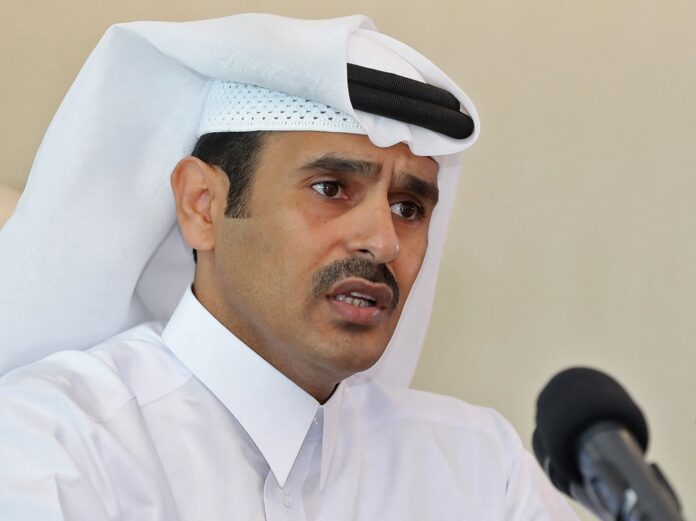LONDON: During an exclusive interview with CNN’s Becky Anderson on Thursday, Qatari Energy Minister Saad Al-Kaabi said that his country will stand “in solidarity” with European nations by continuing to supply them with gas.
Qatar’s agreements with some European countries to supply gas are in the form of “divertible contracts,” which means its has the right to divert supplies to other customers, Al-Kaabi told Anderson, but added that this will not happen.
“We’re not going to divert (contracts) and will keep them in Europe; even if there is financial gain for us to divert away, we would not do that,” he said. “That’s in solidarity with what’s going on in Europe.”
Al-Kaabi rejected the option of imposing sanctions on Russia’s oil and gas sector, stating that “energy should stay out of politics.” He also reiterated that a complete ban on Russian gas supplies to Europe is “not practically possible,” and added that his nation is not “choosing sides” in the conflict between Russia and Ukraine.
Although Qatar withdrew from OPEC in 2019 and has said it has no plans to return to the cartel of oil-producing nations, Al-Kaabi said his country supports recent supply decisions by the organization, describing the plans as “very sensible.”
This week, leading German officials, including Economy Minister Robert Habeck, visited Qatar for talks on the long-term supply of gas to Europe given the current uncertainty about Russian energy supplies.
Germany is dependent on Russian gas for much of its energy needs. More than half of its gas imports come from Russia, compared with an average of about 40 percent across the EU.
Following the visit there were rumors that a deal had been struck between Qatar and Germany for gas supplies but Al-Kaabi denied that this is the case, at least for now.
“We have not agreed a long-term agreement with Germany yet but we’re willing to discuss with the companies that we have been discussing to put a long-term agreement in place, potentially,” he said. “This is a commercial agreement between commercial entities.”
British Prime Minister Boris Johnson visited Saudi Arabia and the UAE last week in an attempt to persuade both nations to increase oil supplies to international markets, despite an existing agreement between a number of oil-producing nations, including Russia, to cap supplies to help stabilize the markets.

